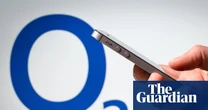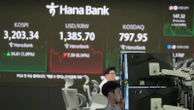Any disruptive technology is likely to run into some courtroom barriers, but the early days of artificial intelligence have proven to be especially litigious.
As companies like OpenAI, Alphabet, Meta, and others engage in an arms race to lead AI development, there has been a flurry of legal action. In many cases, content providers are accusing one or more companies of stealing their intellectual property for training their large language models. Some plaintiffs are focused on privacy issues. And others, like Elon Musk, say AI companies have abandoned their original missions.
Here’s a look at where things stand in this fast-changing environment.
Copyright lawsuits
There are more than 25 copyright lawsuits currently pending against AI companies. One (Thomson Reuters v. ROSS Intelligence) was on the verge of getting underway on August 23, but is now on hold as the judge postponed proceedings the day before the trial was to start.
Thomson Reuters v. ROSS Intelligence
Reuters sued ROSS in May 2020, alleging the AI company used data from the Thomson Reuters legal-research platform, Westlaw, for training its AI system. ROSS counters that it made fair use of the material. This could be a groundbreaking trial that sets precedent for others that follow. The issues are slightly different than other copyright lawsuits but are similar enough that any jury opinions and verdict could steer how attorneys in other cases shape their arguments.
Sarah Andersen v. Stability AI
This class action suit takes on an AI image generator for allegedly using artists’ work without their consent. Andersen, along with Kelly McKernan and Karla Ortiz, filed the suit in January 2023, targeting London-based Stability, DeviantArt, and Midjourney, alleging copyright infringement.
Getty Images v. Stability AI
In February, the stock-photo provider accused Stability AI of using more than 12 million photos in its library without a license for training the Stable Diffusion AI image-generation system. Getty is also alleging trademark infringement, pointing to images the AI created that bear Getty’s watermark, which could cause confusion in the marketplace.
Doe1 v. Github
Anonymous software developers claimed in a court filing last May that OpenAI and Microsoft’s GitHub had stolen source code they had written to build AI tools. In July 2024, however, a California federal judge dismissed their copyright claims, saying that they failed to show that the tools were likely to produce work identical to theirs. Allegations of breach of contract of open-source license violations are still being argued.
Zhang v. Google
Much like the Andersen v. Stability case, this class action suit sees a group of visual artists suing Alphabet, claiming that the text-to-image AI tool on Google was trained using copyrighted works without permission.
J.L. v. Google
Alphabet won this case in June, convincing a judge in San Francisco to dismiss a proposed class action suit over its use of personal and copyrighted data for training its AI systems. After the court decision, the lawyer behind the suit filed Zhang v. Google.
Richard Kadrey v. Meta Platforms
This class action is the consolidation of three suits against Meta, charging the social media company with copyright infringement for allegedly copying their books to train its LLaMa model. Among the plaintiffs are Sarah Silverman, Kadrey, and Ta-Nehisi Coates. A similar lawsuit is pending against OpenAI.
In re OpenAI ChatGPT Litigation
The name is unusual, but this is a consolidation of three cases against the ChatGPT company brought by Sarah Silverman, Paul Tremlay, and Michael Chabon. The complaint is the same as Kadrey v. Meta: copyright infringement and Digital Millennium Copyright Act (DMCA) violations related to the ChatGPT service. A settlement conference is scheduled for mid-September.
Bartz v. Anthropic
Writers and journalists Andrea Bartz, Charles Graeber, and Kirk Wallace Johnson sued the AI company Anthropic this month, alleging that the company had misused their works and thousands of others to train its chatbot Claude. This was the second case filed against Anthropic, following one by music publishers last year.
Millette v. OpenAI
This proposed class action suit alleges OpenAI transcribed millions of YouTube videos without the consent of creators for training its large language model. “By transcribing and using these videos in this way, Defendants profit from Plaintiff’s and class members’ data time and time again,” the complaint reads.
Abdi Nazemian v. Nvidia Corp.
Nvidia’s not immune to the wrath of authors who say their copyrighted content was used without permission. This class action suit, filed by three authors, alleges that the chip maker used 196,640 books to help train its NeMo AI platform to simulate a normal writing style. NeMo was taken down last October “due to reported copyright infringement.”
Dubus v. Nvidia Corp.
Similar to Nazemian v. Nvidia, this complaint is filed by a different author, who alleges Nvidia’s NeMo was trained on their books without permission. On May 29, the case was marked as “related” to the Nazemian action, increasing the chances it will become a class action suit.
O’Nan v. Databricks, MosaicML
Stewart O’Nan, Abdi Nazemian, and Brian Keene, who are leading the charge against Nvidia, are separately suing MosaicML and Databricks for allegedly using their books without authorization to train its large language model. (MosaicML was acquired by Databricks last July.)
Makkai v. Databricks, Inc., MosaicML
In May, fiction authors Rebecca Makkai and Jason Reynolds filed a nearly identical suit to O’Nan’s against Databricks.
Concord Music Group, Inc. et al v. Anthropic PBC
Universal Music Corp and a collection of seven other major music publishers are suing Anthropic for both direct and secondary copyright infringement, saying the AI company used unauthorized copies of lyrics to train its Claude chatbot, as well as distributing those lyrics through Claude. In October, a judge is scheduled to rule on both Anthropic’s motion to dismiss the case and the music publishers’ request for a preliminary injunction that would prevent Claude from outputting any of the data.
Alter v. Open AI
This consolidation of three different cases pits several authors groups against OpenAI and Microsoft. Originally, one of those cases was filed by the Authors Guild and led by high-profile authors, including John Grisham, George R.R. Martin, and Jodi Picoult. The professional organization for writers alleged that the companies used their works of fiction to train ChatGPT. Other authors named as plaintiffs in the suit include David Baldacci, Michael Connelly, Sylvia Day, Jonathan Franzen, Douglas Preston, and Scott Turow. In February, that case was consolidated with Basbanes v. Microsoft, which was filed by journalist Nicholas Gage and author Nicholas Basbanes in January.
New York Times v. Microsoft
The news organization alleges that millions of its copyrighted stories were used to train GPT large language models by OpenAI and Microsoft, which run ChatGPT and Copilot, respectively. Legal experts say this case could have an enormous impact on how generative AI and fair use interact, which could determine how AI models are built moving forward.
Daily News v. Microsoft
On the same day that the New York Times Company filed suit, the New York Daily News accused Microsoft and OpenAI of using its archive of stories to train their products. The suit was filed on behalf of the Daily News as well as the Mercury News, Denver Post, Orange County Register, St. Paul Pioneer-Press, Chicago Tribune, Orlando Sentinel, and South Florida Sun Sentinel. OpenAI, in June, filed a motion to consolidate this suit with the New York Times case. The judge has yet to rule.
The Center for Investigative Reporting, Inc. v. OpenAI
The nonprofit news organization has filed a complaint that echoes the complains of the New York Times and Daily News‘s companies cases. This case was filed in June of this year.
Huckabee v. Bloomberg
Last year, former Arkansas Governor Mike Huckabee (and other authors) accused Meta, Bloomberg, and Microsoft of training their large language models on their works without permission. The case against Meta and Microsoft was moved to California, leaving Bloomberg the sole defendent in this action. The company asked the judge in March to dismiss the case, saying that the use of the copyrighted works was part of a research project and fell under fair use. The judge has not yet ruled.
Raw Story Media, Inc. v. OpenAI
The alternative progressive-news organization filed suit in February against the ChatGPT creator for allegedly using thousands of its stories to train the chatbot. A separate, but nearly identical, suit was filed by the left-wing news outlet, The Intercept.
UMG Recordings v. Uncharted Labs d/b/a/ Udio and UMG Recordings v. Suno
A large collective of music labels, including UMG, Capitol Records, Sony Music, Arista, and Warner Music, banded together in June to sue Uncharted Labs, the maker of Udio.com and Suno, a pair of generative AI tools that let people make music based on prompts. The labels allege that the large language models for these tools were trained on their copyrighted music without permission. Individual cases were filed against each of the tools.
Lerhman v. Lovo, Inc.
Voice actors Paul Skye Lehrman and Linnea Sage have proposed class action status in their suit against Lovo, which accuses the company of selling AI versions of their voices without permission. The pair say they were tricked into providing vocal samples for the company, only to later find their voices used on YouTube videos and podcasts under made-up names.
Privacy lawsuits
A.T. v. OpenAI
Users of ChatGPT are suing the company for allegedly violating state and federal wiretapping laws when it collected user data as they asked questions of ChatGPT. Filed last September, the case is similar to another (P.M. v. OpenAI), which was dismissed by the plaintiffs last September.
J.L. v. Alphabet Inc.
The Google parent company is accused of scraping the data of millions of internet users to train its LLM in this case, which has been quite a ride for observers. The case was dismissed in June by the U.S. District Court for the Northern District of California. In that ruling, though, Judge Araceli Martinez-Olguín noted a second, amended (and streamlined) complaint would be forthcoming. Plaintiffs filed that complaint on July 11, keeping the case alive.
Elon Musk v. Sam Altman, OpenAI
Musk dropped this lawsuit against OpenAI and its CEO in June, only to revive it in August. Musk alleged Altman and cofounder Greg Brockman misled him when they created OpenAI and have failed to live up to their promise of making the company’s technologies open source, partnering instead with Microsoft.
“Altman, in concert with other defendants, intentionally courted and deceived Musk, preying on Musk’s humanitarian concern about the existential dangers posed by A.I.,” the suit reads. OpenAI has previously addressed the claims in a blog post, showing emails that seem to indicate Musk had attempted to shift OpenAI into a commercial operation before he left the company in 2018.










No comments